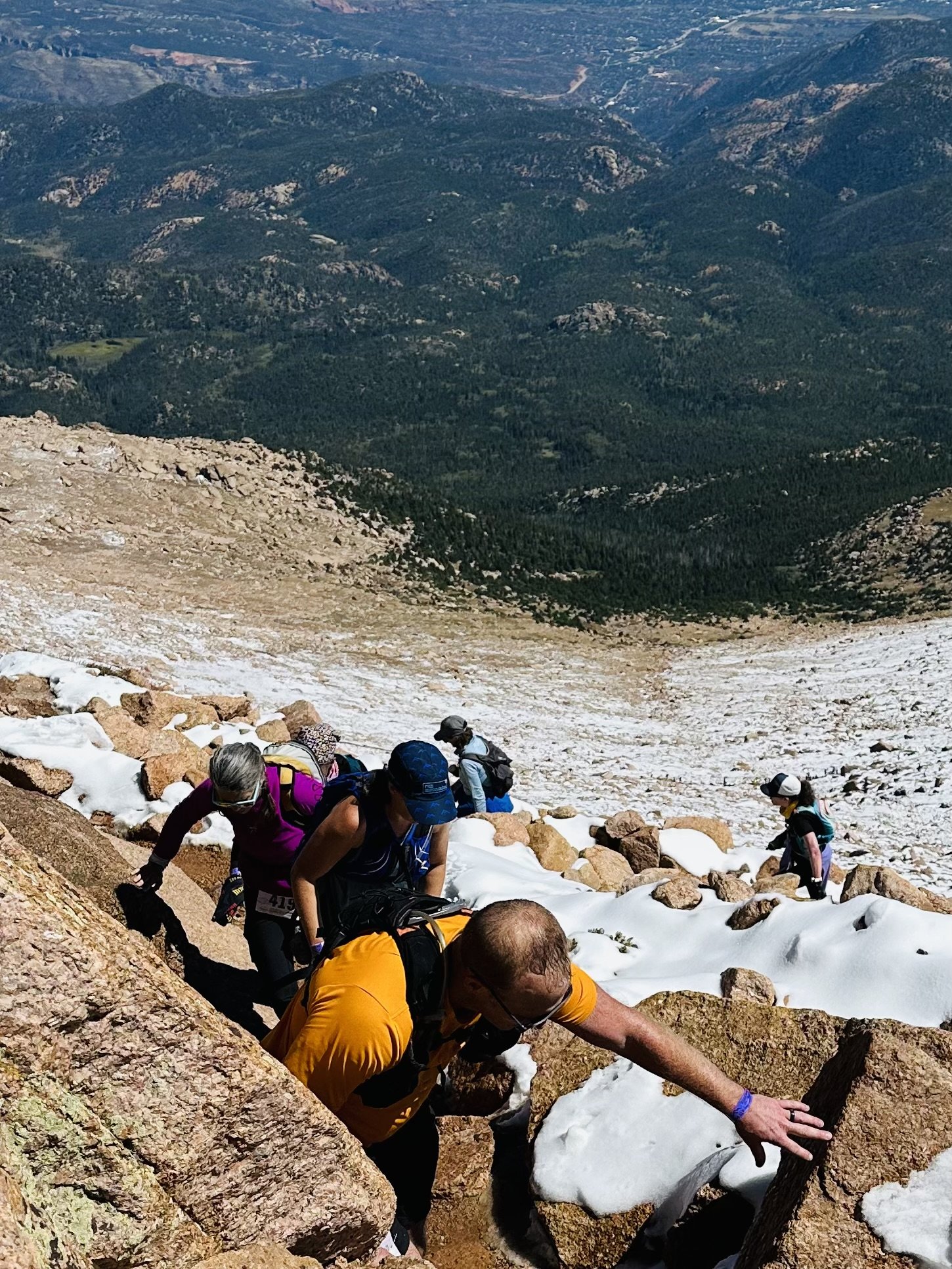Compression Socks - Do they Work?
Liz ascending her personal “Everest”, Pike’s Peak
What is this episode about?
Coach Liz reviews her Pike’s Peak Ascent race experience. Coach Amy explains what compression socks do and how they work, including when to wear them and contraindications for their use.
Pike’s Peak Ascent (0-8:08 min)
What does “fun” in endurance sports mean? Coach Liz shares her experience.
Do Compression socks Help?
Mental benefits for performance and physical benefits for recovery.
What is Lymph?
Waste products that result from injury and training.
Compression socks help with Delayed onset soreness and recovery.
Compression socks help the lymph system recover and prevent delayed onset soreness. As we age, the lymph system declines in function. Check out these articles on compression socks:
https://www.ncbi.nlm.nih.gov/pmc/articles/PMC4081237/
https://pubmed.ncbi.nlm.nih.gov/31503538/
Other ways to boost the lymph system and Recovery
Neurological dry needling
Lymph massage
Recovery exercises like swimming
Graduated compression socks
How do compression socks work?
They aid blood flow and lymph flood toward your heart.
Type of Compression socks that work
Quality, medical-grade socks at 30mmHG. Check out this brand: https://www.cepcompression.com/collections/running
When to wear compression socks
The socks are most effective after long training rides, runs, and races.
Use of compression socks in the Prevention of Deep Vein Thrombosis in endurance sport
What causes blood clots in endurance athletes, what to look for, and how compression socks can help. What to do if you suspect a clot and other ways to prevent clots.
Signs and Symptoms of DVT
Leg swelling
Leg pain, cramping, or soreness that often starts in the calf
Change in skin color on the leg — such as red or purple, depending on the color of your skin
A feeling of warmth on the affected leg
Signs and Symptoms of PE
Sudden shortness of breath
Chest pain or discomfort that worsens when you take a deep breath or when you cough
Feeling lightheaded or dizzy
Fainting
Rapid pulse
Rapid breathing
Coughing up blood
Interesting article to check out: https://thrombosis.org/2022/02/blood-clots-travel-athletes/
Other ways to prevent blood clots
Elevation, hydration, compression, and movement.
What do compression socks not do?
Compression socks do not cure an injury.
Runner’s World Article about Compression Sleeves
Coach Amy recommends socks over sleeves!
https://www.runnersworld.com/gear/g44892906/best-calf-sleeves/
Compression sock fit is important
Measure calf circumference for sizing and fit. Calf girth is more important than sock/shoe size.
Contraindications for compression socks
Chronic exertional compartment syndrome and diabetic neuropathy.



